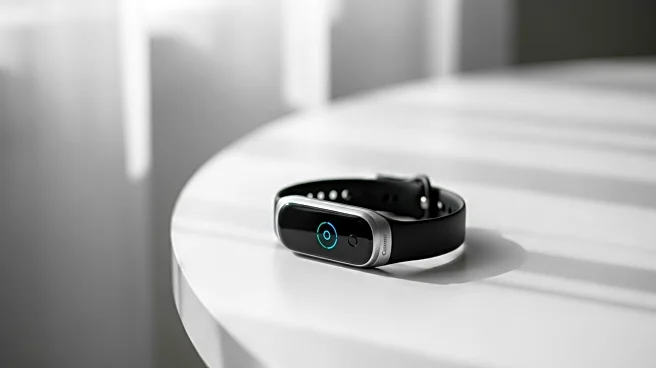What is the story about?
What's Happening?
Smart rings have become a popular choice for health and fitness tracking, with the Oura Ring being one of the most well-known options. However, its high price and subscription fees have led consumers to seek alternatives. Companies like Ultrahuman and Samsung have developed smart rings that offer similar features at a lower cost. These alternatives provide comprehensive health metrics, including sleep tracking and heart rate monitoring, without the need for a subscription. The Ultrahuman Ring Air and Samsung Galaxy Ring are highlighted for their comfort, compatibility, and actionable insights, making them attractive options for consumers looking to track their wellness without breaking the bank.
Why It's Important?
The availability of affordable smart ring alternatives is significant for consumers who are interested in health tracking but deterred by the high cost of the Oura Ring. These alternatives democratize access to health technology, allowing more people to benefit from insights into their wellness and fitness. This shift could lead to increased adoption of wearable technology, impacting the health and fitness industry by broadening its consumer base. Additionally, the competition may drive innovation and improvements in smart ring technology, benefiting users with more advanced features and better user experiences.
What's Next?
As more companies enter the smart ring market, consumers can expect further advancements in technology and design. The competition may lead to more affordable options with enhanced features, such as longer battery life and improved health metrics. Companies might also focus on expanding compatibility with various devices, making smart rings more accessible to a wider audience. The growing interest in wearable technology could prompt tech companies to invest in research and development, potentially leading to breakthroughs in health monitoring capabilities.















